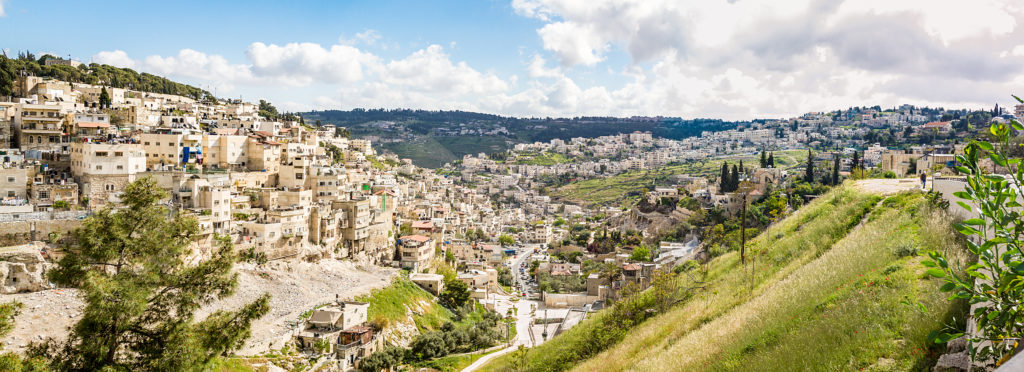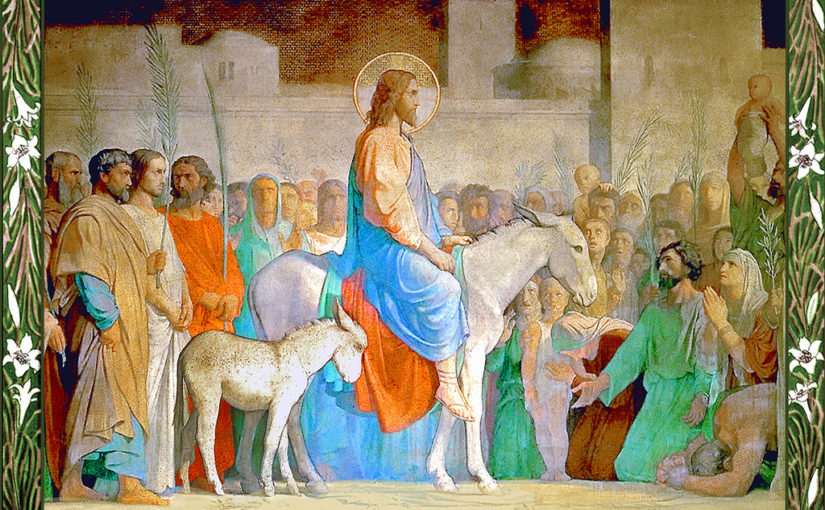
Today’s Reading: Luke Chapter 19, Psalm 67
“As he approached and saw the city, He wept over it, saying “If you knew this day what would bring peace-but now it is hidden from your eyes. For the days will come on you when your enemies will build and embankment against you, surround you, and hem you in on every side. They will crush you and your children within you to the ground, and they will not leave one stone on another in you, because you did not recognize the time of your visitation.” Luke 19:41-44 (HCSB)
There is so much in this 19th Chapter of Luke, I can hardly hold it in. Reading the story of Zacchaeus repenting for his sins and hosting Jesus while others looked on with distain. Then on to Jesus’ entry into Jerusalem on that young donkey. My HCSB Study Bible explains that the distance between Jericho and Jerusalem is about 17 miles. The elevation change is 3,300 feet which means that the road was going up on average at a rate of almost 200 feet per mile. As he nears Jerusalem his disciples and followers spread their cloaks on the road as a way to honor their King. People were rejoicing and proclaiming His mighty works. I can only imagine the electricity in the air that day! I can imagine what it felt like to believe that your King has come and to be able to see him. Some texts say that the crowd was shouting Psalm 118:26:
“Blessed is He who comes in the name of the Lord! We bless you from the house of the Lord.” (Ps 118:26)
This further solidifies the messianic expectation at that time. But when Jesus begins to approach Jerusalem he weeps. He weeps at the thought of rejection by the city of Jerusalem. It is true that the Jews enjoyed peace in this time under Roman rule until about 40 years after Jesus spoke the words in verse 44:
“…They will crush you and your children within you to the ground, and they will not leave one stone on another in you, because you did not recognize the time of your visitation” Luke 19:44
In A.D. 66 the Jews revolted against the Roman control, three years later Roman soldiers attacked Jerusalem and burned it to the ground in A.D. 70. Six hundred thousand Jews were killed during that siege. Many Jews did not open their eyes to see Christ as the Messiah or recognize His coming as God’s visitation and offer of salvation. After studying the gospel of Luke and the historic context I’m struck by how similar this ancient society is to our so called modern society. We too are arguing about who is really the messiah. We have modern pharisees asking us to rebuke one leader in favor of another. Jesus viewed the corruption of the temple as a reflection of the corruption of the nation. He knew that they were about to enter an even greater season of judgement. How can we learn from the fall of Jerusalem? Can we begin to connect the dots between ourselves and the ancient Christians? The leaders among their people included wealthy men in politics, commerce and law. They saw Jesus as a threat. He drove the merchants out of the temple and his teachings favored the poor. He attracted attention that wasn’t in line with their business goals.
I love the woven tapestry of Luke 19. It’s a collection of parables for us to consider and then compare to our own Christian life. Are we tax collectors? Are we merchants in the temple? Are we truly spreading our cloaks out for Jesus to walk upon or are we a Pharisee, rebuking the message of Christ. Are we just plain missing it…in other words are we actually missing the opportunity for a visit from God. Are we so close but not quite there in our total commitment to the Messiah? I know that I have work to do. My eyes are open and looking for encounters with Him this week. I hope yours are too.
Peace.

